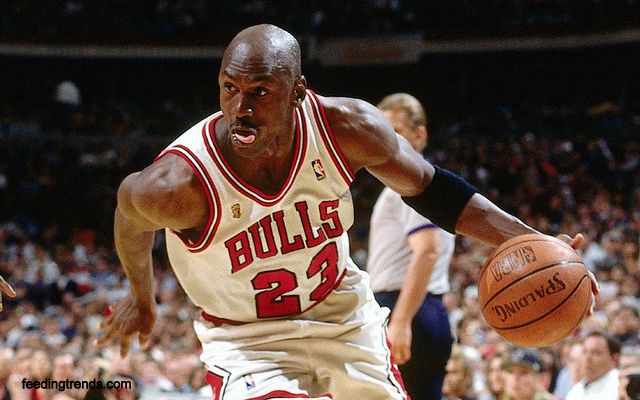The University of North Carolina is steeped in basketball history. Winning six NCAA titles, the Tar Heels remain, to this date, one of the top college basketball programmes worldwide. Moreover, the great Michael Jordan is an alumnus of the college. Thus, playing for the UNC brand comes with its own set of challenges and expectations. Recently, the North Carolina star Armando Bacot confessed to feeling pressure to play for the college.
“Michael Jordan pulling up was one of the craziest experiences. He came into the locker room. We won the game, but we were struggling at that point. We were all just sitting in the locker room, scared as hell, hoping Michael Jordan don’t fry any of us.”
The 6’11” forward recalled being extremely fearful of Jordan during his visit to the Tar Heels locker room. Despite Armando Bacot’s deep reverence for Jordan, when asked about his pick for the greatest player of all time, the 24-year-old sided with LeBron James. This has raised some questions considering he played for Jordan’s alma mater.
Michael Jordan is a Tar Heels legend

Michael Jordan became a household name even before he entered the league due to his three-year tenure at the University of North Carolina. During his stint with the team, Jordan led the team to the 1982 NCAA Championship as a freshman, even burying the game-winning shot for the UNC side.
Aside from the maiden championship, Jordan was also named to the NCAA All-American First Team in his sophomore (1983) and junior (1984) seasons.
While he was undoubtedly athletically gifted, Jordan’s game was far from perfect, when he was a freshman. A majority of his improvement actually came after joining the Tar-Heels, as Coach Dean Smith and his system brought out the best in him. In an interview, coach even said.
“What Michael really did was improve considerably between his freshman and sophomore years. He grew a couple inches. He matured physically. And he just became a sensational player.”
/origin-imgresizer.eurosport.com/2020/04/24/2810689-57978808-2560-1440.jpg)
Another Tar Heels legend, Kenny “The Jet” Smith, echoed a similar opinion with his former coach. In Smith’s opinion, what segregated Jordan from the pack was his work ethic. He recognized that over the years, Jordan transformed his weaknesses into his strengths, and by the time his sophomore season rolled into the picture, Jordan was a complete player, an athlete without flaws.